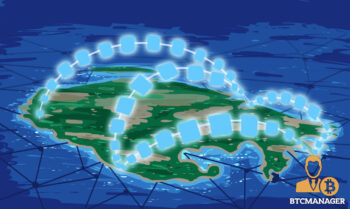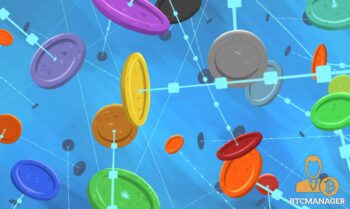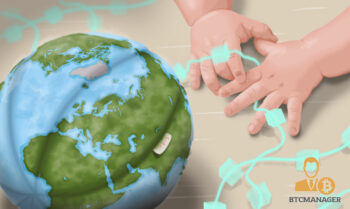2021-3-20 15:20 |
Most plastic and other waste are not recycled. However, communities around the globe are experimenting with blockchain technology to improve that process.
Waste collection essentially consists of different data points along a chain. So, it’s only natural that blockchain technology has the potential to facilitate improvements to that process.
Community Efforts and Blockchain PotentialOne such project has already begun in Argentina.
Local entrepreneur Ivan Zubilewicz first discovered blockchain technology in 2015. It eventually inspired him to establish a waste-collection initiative.
“The idea sort of came from this desire to look at people’s habits, to change the way that people interact with the resources they’re using,” Zubilewicz says. He created JellyCoin, whose value is pegged to the Argentinian peso.
In Argentina, the majority of waste collection is done by people who sort garbage then bring it to the appropriate processing points. JellyCoin intends to compensate these workers, particularly for how much waste they collect, sort, and deliver. Zubilewicz says JellyCoin could also be used to make certain payments to the city, such as real estate taxes.
A similar initiative is underway in Bengaluru, India with the non-profit group Citizen Involved & Technology-Assisted Governance (CITAG). The municipal government, Bruhat Bengaluru Mahanagara Palike, has an app for local issues. One feature of which deals with regulating waste management.
There, users submit complaints regarding local waste collection. This includes uncollected garbage or trash that accumulates in one particular spot. Although in practice, municipal workers must document spots they’ve cleaned via geotagging, there is still potential for neglect or tampering with records.
To address this issue, CITAG is in talks with the government to upgrade the app to a blockchain. This would mean any changes would require three levels of approval. Also, tampering with logs would potentially become a non-factor. Ultimately, this would make the record of citizen grievance filings and collector-marked pickups more accurate and complete.
Global OutreachIn addition to these more localized efforts, a startup based in New York is targeting communities around the world. RecycleGO CEO Stan Chen said the world produces 400 million tons of plastic a year. He lamented that only a small fraction are recyclable.
“What the world needs are scalable solutions, broad scalable solutions in terms of tracking, in terms of attaching data to human activity, in terms of really allowing social impact behavior to be monitored, measured, and credited,” Chen said.
Using blockchain technology, RecycleGO has a series of projects underway across the globe. The company will be organizing a beach cleanup in Miami. There, they will scan QR codes on plastic bottles, which will be put on a blockchain.
RecycleGO will track the bottles as they are broken down into raw materials and turned into merchandise.
The company has a similar initiative planned for Nigeria, but on a larger scale. Additionally, in Ghana, RecycleGO will use a blockchain to track fishing nets lost in the ocean. They will then track the nets as they are collected, baled, and turned back into nylon nets.
Chen says that putting recyclables on a blockchain is a giant step toward a new, better system of recycling. If properly implemented, it could inspire industry leaders to imagine more efficient systems.
The post Blockchain Experiments Aim to Improve Waste Management appeared first on BeInCrypto.
origin »Bitcoin price in Telegram @btc_price_every_hour
High Performance Blockchain (HPB) на Currencies.ru
|
|
































